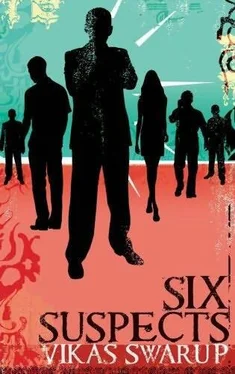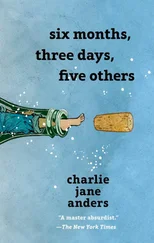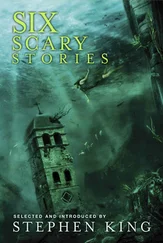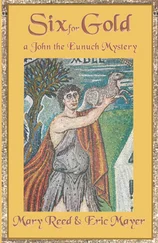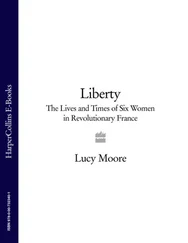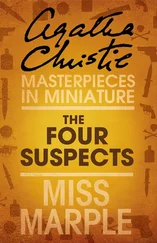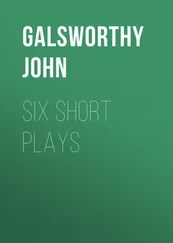'Now remember,' Ashok had instructed Eketi, 'no one must find out that you are an Onge from Little Andaman. So you must keep your hair covered at all times with your cap and ensure that the jawbone around your neck is hidden underneath your T-shirt. If anyone asks, you should say that you are an adivasi, a tribal called Jiba Korwa from Jharkhand. Jharkhand is an Indian State which has many primitive tribes like yours. Understood? Now repeat your new name.'
'Eketi is Jiba Koba from Jakhan.'
'Idiot!' Ashok knocked him on the head. 'You need to say, "I am Jiba Korwa from Jharkhand." Now put on your cap and repeat after me twenty times.'
So Eketi had put on his red Gap cap and repeated his new name till he had memorized it.
The ship had completed its 1,255-kilometre journey in three days, arriving at the Kidderpore Dock in Kolkata the evening before. They had waited for all the passengers to leave and for night to fall. Then they had disembarked and taken a taxi.
No sooner had the taxi left the docks than the night sky had come alive with a brilliant display of fireworks. The ground shook with the sounds of exploding crackers. 'Are they welcoming me?' Eketi asked excitedly, but Ashok shushed him and tapped the driver's shoulder. 'How come you guys are celebrating Diwali twenty days before it is due?'
The driver laughed. 'What, you don't even know that you have arrived in Kolkata at the time of our biggest festival? Today is Saptami, tomorrow is Mahashtami.'
'Oh shit,' Ashok swore under his breath. 'I didn't realize we were landing here bang in the middle of Durga Puja.'
The city was indeed in the grip of puja fervour. There were magnificent pandals at virtually every street corner, glittering in the night like lighted palaces. Eketi sat in the front seat and gaped at the temporary temples of cloth and bamboo, each competing with the other in raucous gaudiness. Some had domes, some had minarets. One called to mind a South Indian temple tower, while another harked back to a Tibetan pagoda. There was one shaped like a Grecian amphitheatre and another which resembled an Italian palazzo. The approach to these pandals was lined with red carpets and lit with a series of illuminated panels.
The streets were full of people, more than Eketi had seen in his life, and the city was slick with sound. Loudspeakers boomed from every pandal. Drum beats reverberated from every corner, a primal call for the tribe to gather. And they gathered in their millions, in their starched saris and immaculately ironed shirts and trousers, converting the city into one giant carnival. The taxi was forced to take several detours as entire streets were blocked off by the police, who blared out cautionary instructions to pedestrians from their megaphones.
An hour and ten minutes later, the taxi stopped in Sudder Street, the backpacker ghetto full of mildewed hotels and decrepit shops selling food, souvenirs and internet access. Ashok checked into Milton Hotel, which had a strange atmosphere of gloomy decay. The manager looked suspiciously at Eketi and asked to see his passport. Ashok had to produce his government ID card to prevent further questioning.
They went through dimly lit corridors to a room on the first floor which was very basic, just two beds separated by a small table. In the harsh glare of the strip light, Eketi noticed damp patches on the walls and cobwebs in every corner. A dripping sound came from the adjoining toilet.
'Eketi doesn't like this hotel.' He curled up his nose.
Anger flared up on Ashok's face. 'What did you expect, darkie? That I'd put you up at the Oberoi? Even this dump is much better than your lousy huts. Now shut up and lie down on the floor.'
As Eketi looked on sullenly, the welfare officer enjoyed a meal of chicken curry and naan bread ordered from room service. Then he took out his lighter and lit up a cigarette.
The tribal eyed the open packet. 'Can Eketi also have one?'
Ashok raised his eyebrows. 'I thought you had vowed not to touch tobacco till you got the ingetayi?'
'Yes. But this is not my island. Here I can do as I please.'
'No, blackie,' Ashok sneered. 'Here you do as I please. Now go to sleep.'
Eketi lay down on the cold floor with the canvas bag as his pillow and chewed on a strip of dried boar. Soon he could hear Ashok's loud snores, but he found it difficult to sleep. The drumbeats appeared to be coming closer, making the wooden floor tremble. He got up and sat by the open window, watching the glow of a pandal in the far distance, observing the junkies and the dogs sheltering under the awnings in the street, breathing in the air of this vast and mysterious city, feeling a frisson of guilty pleasure.
The next morning he tagged along with Ashok, who was going for a walking tour of the area around the hotel. In the next two hours, he saw the white-domed Birla Planetarium, the impregnable brick-and-mortar octagon of Fort William, and the verdant green Maidan, full of gardens, fountains and memorials. He saw men exercising with huge weights, running, skipping, and walking with dogs. He smiled when he came across a group which was standing in a circle and simply laughing, and fell silent upon seeing the grandiose baroque of the Victoria Memorial, its white marble shading pink under the nascent sun. It was the biggest building he had seen in his life and the most beautiful. He shivered with the thrill of discovery.
They continued to walk, passing the tall Shaheed Minar column tower at the northern end of the Maidan, and ended up in Esplanade. The relentless bustle of thousands on the move, the high-rise buildings, the cacophony of sounds thrilled and amazed Eketi. He was especially fascinated by the sonorous trams, moving at a leisurely pace in the middle of the road. 'Can Eketi ride one?' He tugged at Ashok's sleeve and the welfare officer grudgingly relented. They boarded the next tram that came along. It was moderately crowded and they managed to squeeze themselves in. But at the very next stop a throng of commuters charged on and the tram became choked to the gills. Eketi got separated from Ashok and found himself trapped between two executives with briefcases in their hands. The crush of people was unbearable. Eketi began to feel suffocated. Fighting for breath, he dropped down and began burrowing through the legs of passengers, inching towards the rear exit. Managing eventually to reach the door, he swung himself out through the metal railing, used the open window as a ledge and nimbly hoisted himself over the top. Now he sat on the roof of the tram, just below the overhead electricity cable, with his black canvas bag beside him, and felt the liberating rush of a bird released from its cage.
The tram moved into Dalhousie Square, now known as BBD Bagh, the administrative epicentre of the city, and that is where his journey ended. A traffic constable on duty gaped at him in amazement, then ran in front of the tram and brought it to a jerky halt.
Inside the crowded tram Ashok Rajput had finally managed to find a seat. He wiped the sweat and grime from his forehead, looked distastefully at the seething mass of humanity swirling around him and wondered whether this would be his last journey by public transport. Kolkata, he had concluded, did not suit him. There was something about the air of the city – it congealed at the back of the throat like phlegm. And the snarling traffic, the sickly beggars, the filthy streets did not help matters. By this evening, if all went well, he would have the sacred rock in his hands. He had done considerable research on the ingetayi. It was reputed to be a piece of black sandstone, approximately thirty inches tall, shaped like a phallus and carved with indecipherable hieroglyphics, dating back at least seventy thousand years. He would get Eketi to steal it from Banerjee. Then he would get an exact replica made from a sculptor he knew in Jaisalmer. Eketi would then be quietly sent back with the replica to his hell hole on Little Andaman, and he would sell the original to Khosla Antiques, who had already agreed to pay him eighteen lakh rupees for the oldest engraved shivling in the world.
Читать дальше
